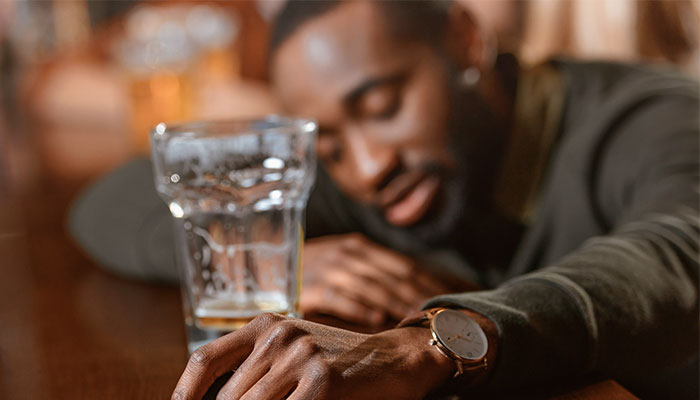
Rate this article and enter to win
Key points
- Hold out for sexual encounters where all partners are mutually engaged and enthusiastic.
- Remember that sexual pressure is always unacceptable.
- If you choose to combine alcohol and sex, be particularly thoughtful about reading all your partner’s cues and checking in more frequently.
We all want sexual encounters to be positive experiences—not just for ourselves but for our partners and the people in our communities. It’s easy to recognize that positive sexual experiences are based in mutual enthusiasm and engagement—a hookup is best when everyone is into it.
“A positive sexual encounter has enjoyment and participation from both sides,” says Alyssa J.*, a second-year graduate student at the University of Wyoming in Laramie.
Fortunately, research shows us that it’s very easy to spot enthusiasm and engagement in a sexual encounter—and equally easy to notice its absence.
“I think it would be obvious to notice if it wasn’t enthusiastic,” says Jamie K.*, a fifth-year undergraduate at Indiana University Southeast in New Albany.

What about when people are drinking?
When people are drinking, they can still pick up on these basic signs of agreement and refusal. “Interpreting cues can take a bit more effort when people are impaired (for example, by exhaustion, intoxication, or anxiety),” says Dr. Melanie Boyd, who runs programming designed to create a more positive sexual and romantic culture at Yale University. “But those deeply ingrained skills don’t desert us even then.”
The role of alcohol myopia
However, alcohol myopia—people’s tendency (when drinking) to focus on more immediate cues—can make people more likely to ignore signals that aren’t in line with what they want or what feels easiest in the moment, according to a 2011 study in the journal Addictive Behaviors.
Alcohol myopia explained (in the context of pizza)
Imagine you have a friend who is lactose intolerant but loves cheese pizza. When you go out to eat, your friend wants to order pizza, but he knows that it will lead to a terrible stomachache tomorrow, so he orders a burger instead. However, when you go to the same restaurant after a night of drinking, he may be more likely to ignore his lactose intolerance and order the pizza. Your friend still knows that he is lactose intolerant, but in the moment, the enticing smell of the hot pizza in front of him might seem more relevant than the less immediate idea of a stomachache tomorrow. This is an example of alcohol myopia.
In the same way, alcohol myopia can make people more likely to pay attention to the cues that they want to see rather than to weigh these carefully with cues that they do not want to see. For example, if someone really wants to hook up with another person, alcohol myopia could mean they’ll pay less attention to signs of ambivalence or reluctance. For instance, they might pay more attention to the fact that the person kissed them earlier in the night than to the fact that that person is now pulling away from kisses. In this instance, they are still seeing the signs of disinterest and refusal—but may find it easier to ignore them.
What does this mean for sex?
Knowing about how alcohol myopia works means that when people choose to combine drinking and sex, they take on an additional layer of responsibility. They need to pay careful attention to the signals that their potential partner is sending, including signals of ambivalence, reluctance, or refusal. If a partner shows any of those signs, you should stop what you’re doing and make sure they are OK, whether alcohol is involved or not.
Alcohol does not make you a different person and isn’t an excuse for ignoring these important signals
Sometimes, people act as if alcohol turns you into someone else entirely. It doesn’t.
Think back to the pizza example. Imagine that there’s another friend in your group who really hates anchovies. She’s always thought that the slimy little fish are disgusting, and she’s refused to eat them since early childhood. Just talking about them can turn her stomach. If she was out drinking and someone ordered a large pizza with extra anchovies, she still wouldn’t want to eat them! Alcohol does not change her preferences or desires.
Similarly, alcohol does not make people more sexual or more violent. Research shows that people’s beliefs about how alcohol affects their behavior may actually be what leads them to behaving differently in social contexts, rather than the alcohol itself. For example, when researchers gave people placebo drinks (that is, when people thought they were drinking alcohol but really were not), they saw changes in their social behavior (e.g., they spoke more loudly or were more flirtatious), according to a classic review of the literature published in Addictive Behaviors. Researchers also found that people behaved more or less intoxicated based on the color and flavor of their drinks, even if the alcohol content was the same, according to a 2011 study in Psychological Perspectives.
In short, alcohol does not change people’s values or desires. People who are sexually aggressive when they are drinking have these tendencies when they are sober too, according to a 2012 review of studies published in Drug and Alcohol Review.
To reiterate:
- Alcohol does not make people more violent or more sexual
- When people are drinking, they can still pick up on verbal and nonverbal signs of agreement and refusal, and they can tell if these signs are mixed or unclear
- Alcohol myopia can make it easier for them to ignore signals that don’t confirm what they want
- People who are drinking take on an extra layer of responsibility to pay attention to all cues and weigh them carefully

What if someone has had too much to drink?
If there is any doubt about whether a hookup partner has had too much to drink, the safest and most respectful thing to do is to stop the encounter.
However, in most instances, alcohol does not prevent people from communicating effectively. When people have had some alcohol (and are not incapacitated), they tend to send the same signs of agreement and refusal that they normally would. This means they can still give consent, but it must be voluntary, clear, and not the result of influence or pressure. A positive sexual encounter is one where people are “clearly eager and excited,” says Matt J.*, a fourth-year undergraduate at the Missouri University of Science and Technology in Rolla.
At high levels of intoxication, people become incapacitated, or incapable of making informed decisions, and they can no longer consent to sex. State laws vary in how they define incapacitation, but generally it is against the law to have sex with someone who you know or reasonably should know is incapacitated. Incapacitation is easy to spot: People are not communicating effectively (they might be slurring, unable to walk unassisted, or not making sense). If a person seems incapacitated, you should stop what you’re doing and help them get medical attention.
At the end of the day, we know that mutually enthusiastic sexual encounters are more fun and pleasurable than encounters where we’re unsure whether or not the other person is into it. Holding out for enthusiasm leads to better sexual experiences and helps build a stronger, more respectful community.
Resources for sexual assault survivors and their loved ones: RAINN
Worried about a friend’s drinking?: Above the Influence
More about the interaction between alcohol and aggression: Our Thinking About Drinking
Article sources
Melanie Boyd, assistant dean of student affairs at Yale College Dean’s Office, director of Yale College Office of Gender and Campus Culture, and acting director of Yale University Alcohol and Other Drugs Harm Reduction Initiative, New Haven, Connecticut.
David Lindsay, former student affairs fellow, Yale University Alcohol and Other Drugs Harm Reduction Initiative, New Haven, Connecticut.
Yonas Takele, student affairs fellow, Yale University Alcohol and Other Drugs Harm Reduction Initiative, New Haven, Connecticut.
Abbey, A. (2011). Alcohol’s role in sexual violence perpetration: Theoretical explanations, existing evidence and future directions. Drug and Alcohol Review, 30(5), 481–489. Retrieved from https://www.ncbi.nlm.nih.gov/pmc/articles/PMC3177166/
Dartmouth College. (n.d.). Sex, drugs & alcohol. Retrieved from https://www.dartmouth.edu/consent/sex_drugs_alcohol/index.html
Giancola, P. R., Duke, A. A., & Ritz, K. Z. (2011). Alcohol, violence, and the alcohol myopia model: Preliminary findings and implications for prevention. Addictive Behaviors, 36(10), 1019–1022. Retrieved from https://www.ncbi.nlm.nih.gov/pubmed/21665371
Rape, Abuse, & Incest National Network (RAINN). (n.d.). Legal role of consent. Retrieved from https://www.rainn.org/articles/legal-role-consent
Rohsenow, D. J., & Marlatt, G. A. (1981). The balanced placebo design: Methodological considerations. Addictive Behaviors, 6(2), 107–122. Retrieved from https://www.ncbi.nlm.nih.gov/pubmed/7023202
Siegel, S. (2011). The Four Loko effect. Perspectives on Psychological Science, 6(4), 357–362. Retrieved from https://www.psychologicalscience.org/news/releases/the-four-loko-effect.html
Steele, C. M., & Josephs, R. A. (1990). Alcohol myopia: Its prized and dangerous effects. American Psychologist, 45(8), 921. Retrieved from https://www.ncbi.nlm.nih.gov/pubmed/2221564
Zawacki, T., Abbey, A., Buck, P. O., McAuslan, P., et al. (2003). Perpetrators of alcohol‐involved sexual assaults: How do they differ from other sexual assault perpetrators and nonperpetrators? Aggressive Behavior: Official Journal of the International Society for Research on Aggression, 29(4), 366–380. Retrieved from https://www.ncbi.nlm.nih.gov/pmc/articles/PMC4586126/



























